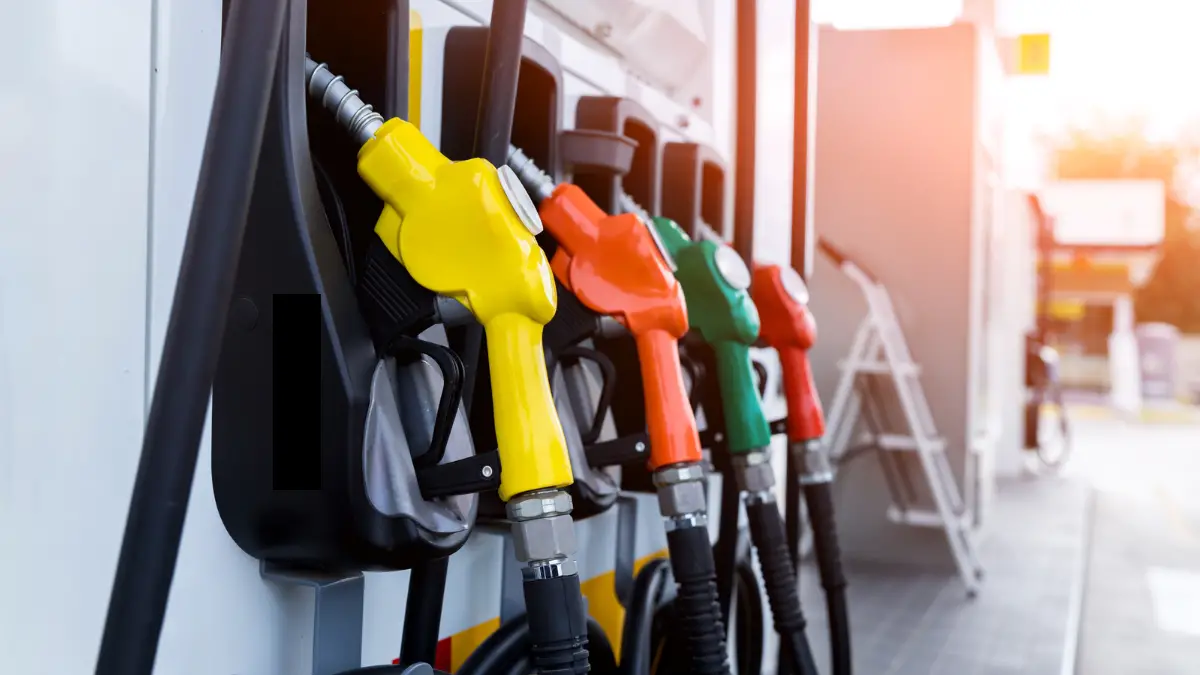Premium Motor Spirit fuels automobiles and plants that rely on internal combustion engines, also referred to as Mogas. Oil and gas are among the most treasured natural resources that have become readily available in our nation. Petroleum-related products are an important resource for the everyday operations of individual, industrial, and national activities. Nigerians and people worldwide use them as fuel for their cars, generator sets, industrial plants, and cooking. Despite being an oil-producing country, Nigeria yet depends on imported petrol to support its economy.
A large majority uses petroleum products, including petrol (PMS), diesel (AGO), and kerosene (DPK), frequently; on average, 60 million liters are used each day.
The price of petrol has skyrocketed from N195 per liter to about N1300 per liter, pushing inflation to an almost three-decade high of 34.19 percent in June. It has since slowed to 32.7 percent in September. The cost of living has also risen, with an estimated 87 million Nigerians living below the poverty line, according to the latest data by the World Bank.

Compressed Natural Gas (CNG)
CNG stands for Compressed Natural Gas, and it is produced by compressing methane to a fraction of less than one percent of its initial volume. Retaining natural gas in reserve at high pressure and minimum temperature makes this possible. Compressed natural gas is 100% pure, odorless, and safe. It is less costly and safer than petrol or diesel for consumption in automobiles. The main use of compressed natural gas is as a substitute fuel for automobiles. But it’s also useful in electricity generation, water heating, and air conditioning.
Why CNG?
Higher living standards have led to an increase in the number of Nigerians that own cars. The importance of a PMS alternative also rose after the fuel subsidy was removed. A rising consumer demand for fuel so that they can continue running their industrial facilities and generator sets. As well as the need for a consistent supply of energy to allow continuous production of goods and services. As a result of Nigeria’s reliance on Premium Motor Spirit (PMS), the country has experienced significant problems with its economy, society, and environment.
In addition to its reliance on imported fuel, the country is subject to price modifications, which contribute to economic instability and inflation. Fears over climate change and air pollution have also been brought up by PMS’s negative environmental impacts.
With so many advantages, compressed natural gas, or CNG, is a good substitute. Since the fuel subsidy was completely eradicated in June 2023 and subsequent adjustments were made after the harmonization of foreign exchange, Nigeria has had to deal with rising petrol prices in recent months. Which at the government-owned NNPC has now surpassed ₦1,100 per liter.
Petrol subsidies were introduced to stabilize petrol costs for consumers, but they ultimately put a burden on Nigeria’s finances, costing the government over ₦5 trillion a year. Increased transportation costs as a result of the elimination of this fuel subsidy highlight the necessity of alternate fuel sources, such as CNG, to benefit both businesses and consumers.
Benefits of CNG
Compressed natural gas emits far less carbon compared to traditional fossil fuels.
CNG has limited flammability making accidental combustion less likely.
Vehicles using compressed natural gas incur lower maintenance costs.
Compressed natural gas does not contaminate motor oil like traditional fuels do.
Vehicles using CNG run quietly, eliminating noise pollution. Therefore, the implementation of CNG would reduce environmental pollution to a great extent.
Challenges faced in implementing CNG
Although the benefits of adopting CNG in place of PMS are valid, there have been a few concerns. The primary concern is the high conversion cost for vehicles from petrol to CNG. Which could hinder the government’s efforts to mitigate the rising cost of petrol. While the government’s directive and the support from gas stakeholders signify a strong push towards CNG adoption, addressing the high conversion costs and other potential hurdles is crucial to the success of this transition and realizing its economic and environmental benefits.
The absence of suitable infrastructure is also another challenge of the main obstacles. For consumers to find CNG convenient and accessible, a vast network of pipes and refueling stations is necessary. The initial investment requirements for CNG vehicles and infrastructure can be costly. Especially for people and small enterprises, therefore financial obstacles are another problem. The general lack of acceptance and awareness is another major barrier. Due to their lack of knowledge about CNG and its advantages, many Nigerians are reluctant to use this alternative fuel.
A multifaceted strategy including public awareness campaigns, private sector investment, and government engagement is needed to address these issues.
Costs of Implementation
While the Government’s directive and the support from gas stakeholders signify a strong push towards CNG adoption, addressing the high conversion costs and other potential hurdles is crucial to the success of this transition and realizing its economic and environmental benefits. It was concluded that the equipment needed to convert a transporter’s petrol or diesel-powered vehicle to run on compressed natural gas (CNG) would cost between N1.2 million and N1.5 million. The Finance minister in a report says that CNG is cheaper than PMS.
The Nigerian government has put in place tax incentives to significantly lessen the financial burden of developing CNG infrastructure. The goal of these incentives is to increase CNG’s appeal to stakeholders and investors. The government intends to accelerate the development of CNG infrastructure by offering tax exemptions and other financial incentives.
Conclusion
In conclusion, several factors, which include availability, cost, environmental concerns, and vehicle performance specifications, influence the decision to convert from PMS to CNG. While petrol offers outstanding results and efficiency in terms of refueling infrastructure, compressed natural gas (CNG) is a more economical as well as sustainable choice. Even though switching to CNG may appear expensive, there are several advantages over time.
Nigeria’s option to switch from Premium Motor Spirit (PMS) to Compressed Natural Gas (CNG) as its main fuel source presents a great chance for technological advances in the nation’s energy security, ecology, and economy. Even while there are still barriers to overcome, such as the costs associated with infrastructure and technical difficulties, they can be reduced with thorough preparation and financial support.
A seamless transition can be fostered by legislative support, business sector involvement, and international cooperation. Embracing CNG as a more sustainable and clean energy option will establish Nigeria as a leader in Africa’s energy revolution.





